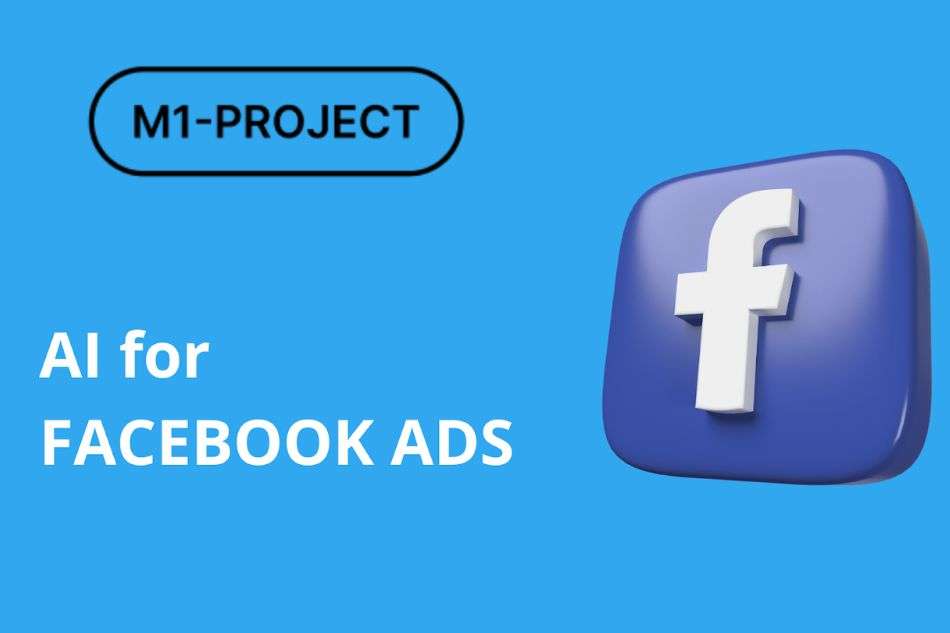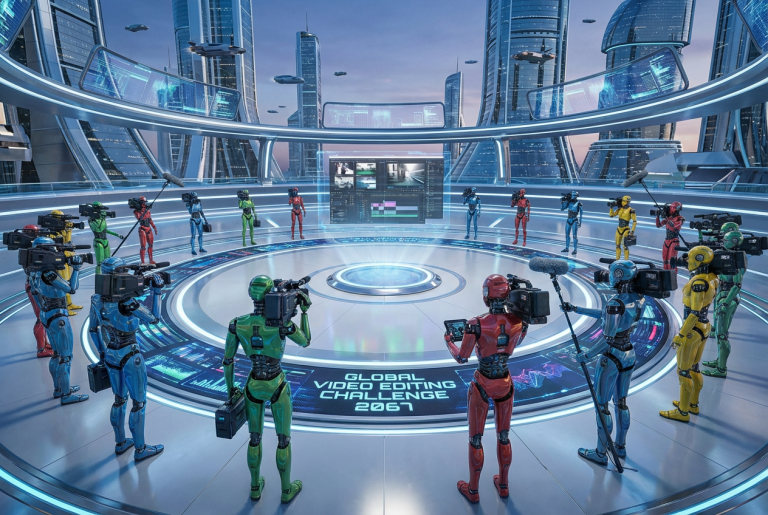Maximizing Advertising Effectiveness on Facebook with Artificial Intelligence Tools

In today’s digital world, advertising on Facebook has become one of the most powerful tools for businesses looking to attract new customers and increase brand awareness. However, increasing competition and changes in the platform’s algorithms make achieving desired results more challenging. Artificial intelligence (AI) offers solutions for optimizing advertising campaigns by automating routine processes and providing in-depth data analysis.
By using AI, marketers can effectively target their audience, personalize content, and optimize budgets, ultimately leading to increased conversions and improved return on investment (ROI). In this context, we will explore how AI-based tools can maximize the effectiveness of advertising on Facebook.
Overview of M1-Project AI Tools for Facebook Advertising
As of today, there are numerous online services that utilize artificial intelligence to optimize Facebook advertising. One of the most popular services is M1-Project, which uses its proprietary AI marketing assistant, Elsa. When choosing an AI marketing assistant for your business, it’s important to understand its capabilities. Here are some standout features of the M1-Project marketing AI:

- The platform analyzes large volumes of data, providing insights that a human team would take much longer to discover. This helps you make data-driven decisions and stay ahead in a competitive market.
- Personalization is critical for effective marketing. With an AI personal assistant, you can craft customized plans that resonate with your audience, leading to higher engagement and improved conversions.
- Automation is a major benefit of an AI assistant. From email campaigns to social media management, the AI handles repetitive tasks, giving you more time to focus on strategy and creativity.
- Predictive analytics is another key advantage. An AI marketing consultant can forecast market trends, customer behavior, and campaign success, giving you the power to stay ahead of the curve.
- Seamless integration with your existing marketing tools and platforms ensures streamlined workflows and optimized marketing efforts, maximizing productivity.
- For content creation, AI-driven tools help generate high-quality text, visuals, and other materials efficiently and effectively.
These features make AI marketing assistants a vital tool for businesses looking to stay competitive and adaptive in a fast-changing landscape.
Key Features to Maximizing Facebook Ads with AI tools
Competitive digital landscape, advertisers are constantly seeking ways to maximize the effectiveness of their campaigns. Facebook Ads offer unparalleled access to diverse audiences, but to truly unlock their potential, businesses must turn to Artificial Intelligence (AI). AI tools not only streamline ad management but also enhance targeting, optimization, and personalization. Here are key ways AI can boost your Facebook advertising efforts:
AI-Driven Personalization and Dynamic Ads
Personalization is critical to engaging your audience, and AI excels in this area. With AI tools, you can segment your audience into specific groups and tailor content that resonates with each segment. Dynamic ads, powered by AI, automatically adjust visuals and messaging to suit the preferences of each viewer, creating a more personalized user experience. This level of customization improves click-through rates (CTR) and ultimately leads to better conversions.
Automation in Facebook Ad Management
One of the biggest challenges in running Facebook ad campaigns is the need for constant monitoring and adjustments. AI automates this process, managing everything from bidding strategies to budget allocation. AI-driven platforms can analyze vast datasets in real-time, making automated decisions that optimize campaigns for better performance. This saves time, reduces human error, and allows marketers to focus on higher-level strategy rather than repetitive tasks.
Predictive Analytics for Ad Performance
Predictive analytics, powered by AI, plays a significant role in forecasting the success of your ad campaigns. AI tools can analyze historical data and market trends to predict future outcomes, helping you make data-driven decisions. By anticipating shifts in customer behavior, AI allows you to tweak your campaigns in real-time to maintain optimal performance. Predictive analytics also aid in budget allocation by determining which campaigns are most likely to succeed, ensuring a better return on investment (ROI).
AI for A/B Testing and Campaign Optimization
A/B testing has traditionally been a manual process, but AI has revolutionized this practice. AI can run multiple variations of ads simultaneously, gathering data and optimizing the best-performing elements in real-time. Whether it’s testing different headlines, images, or CTAs (call to actions), AI tools identify the most effective combinations quickly, enhancing your campaign’s performance. The continuous optimization driven by AI ensures that your ads are always aligned with audience preferences and market conditions.
Maximizing ROI with AI in Facebook Ads
Maximizing Facebook Ads with AI tools help businesses to optimize their ad spend by perfecting in real time every aspect of the campaign—from targeting to bidding strategies. AI-powered platforms can set dynamic bids based on real-time insights, ensuring that you’re spending your ad budget effectively. Additionally, AI helps identify high-performing segments within your audience, allowing you to allocate more resources to campaigns that generate the best ROI. By automating the optimization process, AI ensures that every dollar spent on Facebook ads delivers maximum value.
Challenges and Limitations of AI in Facebook Ads
Despite the numerous advantages, there are challenges to consider when integrating AI into Facebook advertising. One limitation is the over-reliance on AI automation, which may result in reduced human oversight. While AI can handle data-driven decisions, creative input still requires human intervention to maintain brand authenticity. Additionally, ethical concerns, such as data privacy, must be addressed when using AI for targeted advertising. Finally, businesses must ensure that their teams are equipped to understand and work alongside AI, as improper use could lead to suboptimal campaign results.
Conclusion
Utilizing AI-based tools for Facebook advertising can significantly enhance the effectiveness of marketing campaigns. It is recommended to regularly analyze data, personalize content, and use automation to optimize processes. This will not only increase conversions but also reduce costs. To learn more about AI in marketing, utilize resources such as AI Marketing Assistant Elsa.




